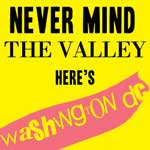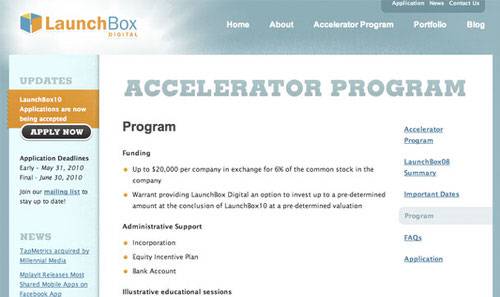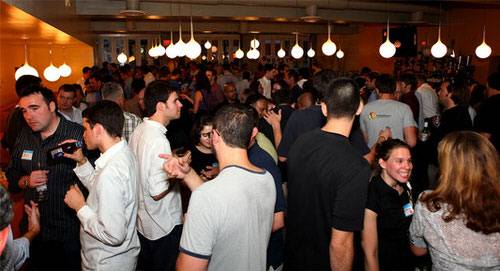The words “fat cats in Washington” have been uttered in every corner of the nation from Texas to the Bay, yet DC’s tech scene is anything but sluggish. Companies like AOL, Nextel, MCI and Uunet found early success in the region and since then, a slew of young entrepreneurs have emerged to follow suit. Some of the companies include LivingSocial, Clearspring, CareerBuilder, OPower and iPhone app development service PointAbout. ReadWriteWeb caught up with some of the industry’s movers and shakers to find out what the DC scene has to offer for entrepreneurs.

RWW’s Never Mind the Valley series:
Funding and Resources
editor and author of the
Aaron Brazell believes that the funding scene in DC is still in its infancy. Brazell mentions email tool
, advocacy platform
and
as some of the great DC projects that, had they not been in DC, might have sought VC investment.”
Says Brazell, “There are compelling stories of entrepreneurs and startups struggling to exist in a policy/advocacy based world. We’re not getting the support of VCs, particularly in the Valley – who have myopia about what a successful startup should look like…We need more entrepreneurs. We need more big names to attract funds. We need people who can see beyond Twitter and see bigger societal and cultural issues.”
But it’s a Potomac Falls company named Summize who recently made headlines after being acquired by Twitter to become the real-time service’s search feature. Still, the region’s startups are by no means Twitter-centric. It’s defense, government and telecommunications that make up the majority of the industry plays.
When asked how the government influence shapes a company’s business development and funding pitch Zoetica Media cofounder and Now Is Gone author Geoff Livingston replies, “If you want to sell to the government, you can’t act like a flippant startup pushing ‘free’. Free doesn’t fly with taxpayers or conservative public servants who are constantly under fire for overspending. FortiusOne is a great example of a startup that’s 2.0, but also sells to the government. If you visit Google or Microsoft’s west coast HQ you have a very free work culture, but conversely their DC offices are large, hip, but still conservative DC.”
That being said, Livingston sees enormous opportunity for startups in the DC area as $80 billion dollars of the President’s budget is expected to be invested in the region for new technology and IT infrastructure.
Some of the existing government-related funding sources include DARPA, The National Science Foundation and the CIA venture fund In-Q-Tel. Meanwhile firms like Novak Biddle, Valhalla Partners and Grotech offer opportunities for large-scale investment. Other sources include the Maryland Venture Fund and the Center for Innovative Technology.
Mentorship and Mindshare

The region’s best known accelerator program is
. Launchbox’s founders Matt Jacobsen, Mark McDowell and John McKinley are heralded as the mentors that are bringing the
-model to the nation’s capital. The group offers entrepreneurs modest seed funding and similar to many of the region’s
, participants also receive space and mentorship. Some of the group’s advisors include former FCC Chairman Reed Hundt, AOL’s Ted Leonsis and General Manager of Microsoft Mobile Eric Engstrom.
In addition to Launchbox’s mentors, DC entrepreneurs gain new insight from Aaron Brazell’s Technosailor, Frank Gruber’s Somewhat Frank, Nick O’Neill’s Social Times, Jared Goralnick’s TechnoTheory and Ernesto Gluecksman’s consultancy Infamia.
iStrategy Labs founderCEO Peter Corbett is an active mentor and strategist in the government-related startup scene.
Says Corbett, “[Entrepreneurs] should be following what our government leaders are thinking and saying. For example, Minds in the Cloud is a new project we’re working on to help people understand the present and future possibilities of cloud computing. If you’re working on cloud technology, you need to be listening to what people like Aneesh Chorpa (Federal CTO) and Vivek Kundra (Federal CIO) are doing so you can build your products and services in such a way that they’ll integrate well with the administration’s technology strategy.”
Challenges like Apps for America and iStrategy Lab’s Apps for Democracy also allow technologists to play a role in government initiatives while O’Reilly’s Gov 2.0 Conference is always a huge draw for the region.
The Ups and Downs of Capitol Hill
With so many great companies in the region,
founder Chris McGill sees DC as a challenging but positive place to run a startup. Says McGill, “The government, defense and telecom industries infrastructure provide an extraordinary business opportunity. The best thing [about DC] is the diversity of people. The worst thing is the distance from the new media epicenter in Silicon Valley and the inability to walk down the street and form a strategic partnership. ”
When asked about how the DC scene has shaped his web-based real estate site, HotPads CEO Douglas Pope replied, “HotPads has tried to use its location and its interest in politics to generate buzz. Each election year we produce Congressional Housing Heat Maps. [We] show the foreclosure rates and home prices by districts and the rates of the parties based on how the districts they control are doing. It’s pretty fun and dorky but it gets some good attention and we probably wouldn’t think to do that if we didn’t see the President’s helicopter out our window every day.”
Pope regularly attends events like Tech Cocktail, Twin Tech and Ignite DC to meet other entrepreneurs. Other great networking events include Bootstrap Maryland and HacDC.

Says Peter Corbett, “By being in the nation’s capital you gain a perspective on ‘how things work’ to a much greater degree than anywhere else. By combining knowledge of government, politics, global NGOs and the technology community, we’re able to see opportunities that just aren’t visible if you’re not here day to day.”
Photo Credit: TechCocktail event by Shawn Duffy

















